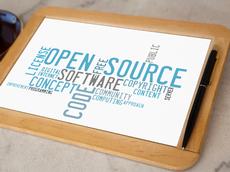 With the Department of Justice announcement of the $155 million dollar eClinicalWorks settlement (including personal liability for the CEO, CMO and COO), many stakeholders are wondering what’s next for EHRs. Clearly the industry is in a state of transition. eCW will be distracted by its 5 year corporate integrity agreement. AthenaHealth will have to focus on the activist investors at Elliott Management who now own 10% of the company and have a track record of changing management/preparing companies for sale. As mergers and acquisitions result in more enterprise solutions, Epic (and to some extent Cerner) will displace other vendors in large healthcare systems. However, the ongoing operational cost of these enterprise solutions will cause many to re-examine alternatives such as Meditech...
With the Department of Justice announcement of the $155 million dollar eClinicalWorks settlement (including personal liability for the CEO, CMO and COO), many stakeholders are wondering what’s next for EHRs. Clearly the industry is in a state of transition. eCW will be distracted by its 5 year corporate integrity agreement. AthenaHealth will have to focus on the activist investors at Elliott Management who now own 10% of the company and have a track record of changing management/preparing companies for sale. As mergers and acquisitions result in more enterprise solutions, Epic (and to some extent Cerner) will displace other vendors in large healthcare systems. However, the ongoing operational cost of these enterprise solutions will cause many to re-examine alternatives such as Meditech...
microservices
See the following -
Halamka on What's Next for Electronic Health Records
- Login to post comments
HHS Releases Landmark Report: Reforming America's Healthcare System
 On December 3, 2018, the Department of Health and Human Services (HHS) released an extensive, 120-page report on the administration's proposals to reform the healthcare system. The report, titled Reforming America's Healthcare System Through Choice and Competition, is divided into four major sections. The report that government policy of the last few years has suppressed competition, increased prices for healthcare, and limited choices for consumers. Though rich in detail as it tries to prove each of these points, the more than fifty recommendations are often broad and aspirational rather than practical. Since I am not a health economist, I will leave the market issues to others to discuss (many of the ideas in this report have been vetted and discussed by others previously). But there are two sections of the report which make direct mention of Health IT.
On December 3, 2018, the Department of Health and Human Services (HHS) released an extensive, 120-page report on the administration's proposals to reform the healthcare system. The report, titled Reforming America's Healthcare System Through Choice and Competition, is divided into four major sections. The report that government policy of the last few years has suppressed competition, increased prices for healthcare, and limited choices for consumers. Though rich in detail as it tries to prove each of these points, the more than fifty recommendations are often broad and aspirational rather than practical. Since I am not a health economist, I will leave the market issues to others to discuss (many of the ideas in this report have been vetted and discussed by others previously). But there are two sections of the report which make direct mention of Health IT.
- Login to post comments
Using Open Source in the Enterprise - 13 CIOs Embracing Free and Open Source Software
 Open source enterprise use cases appear to be on the rise, at least anecdotally, with an increasing number of CIOs, IT directors and Chief Technology Officers telling CIO UK about investigating and adopting free and open source alternatives to proprietary software as they seek to gain freedom and flexibility, cut costs, increase agility, improve code quality and avoid vendor lock-in.
Open source enterprise use cases appear to be on the rise, at least anecdotally, with an increasing number of CIOs, IT directors and Chief Technology Officers telling CIO UK about investigating and adopting free and open source alternatives to proprietary software as they seek to gain freedom and flexibility, cut costs, increase agility, improve code quality and avoid vendor lock-in.
- Login to post comments
Why the Operating System Matters Even More in 2017
 Operating systems don't quite date back to the beginning of computing, but they go back far enough. Mainframe customers wrote the first ones in the late 1950s, with operating systems that we'd more clearly recognize as such today—including OS/360 from IBM and Unix from Bell Labs—following over the next couple of decades. An operating system performs a wide variety of useful functions in a system, but it's helpful to think of those as falling into three general categories. First, the operating system sits on top of a physical system and talks to the hardware. This insulates application software from many hardware implementation details...
Operating systems don't quite date back to the beginning of computing, but they go back far enough. Mainframe customers wrote the first ones in the late 1950s, with operating systems that we'd more clearly recognize as such today—including OS/360 from IBM and Unix from Bell Labs—following over the next couple of decades. An operating system performs a wide variety of useful functions in a system, but it's helpful to think of those as falling into three general categories. First, the operating system sits on top of a physical system and talks to the hardware. This insulates application software from many hardware implementation details...
- Login to post comments
MongoDB World 2017
MongoDB World is a conference designed to bring together members of the world's fastest-growing database community to network with other professionals, learn how to deploy mission-critical applications at scale, and explore new MongoDB features, technologies and methodologies. MongoDB World is especially suitable for developers, operators, and architects who are interested in building applications with MongoDB, learning best practices for maintaining MongoDB clusters, and using MongoDB as part of their enterprise architecture...
- Login to post comments